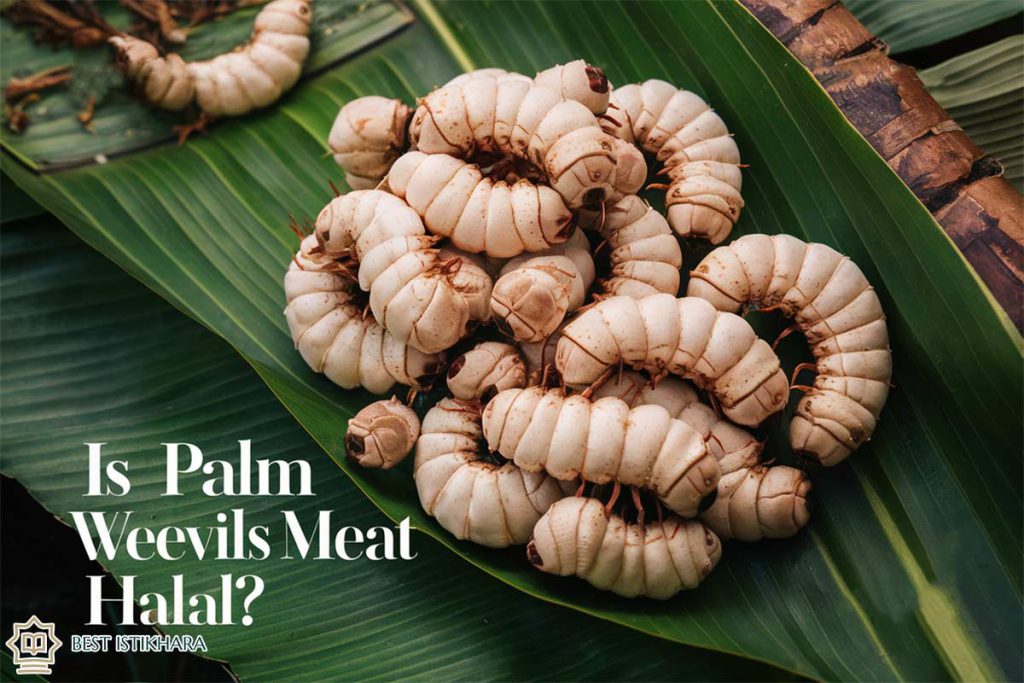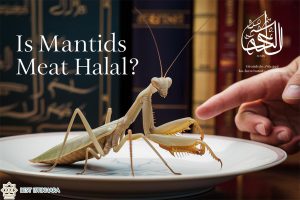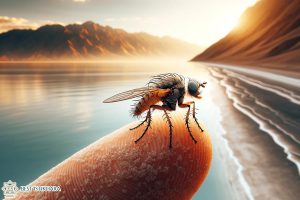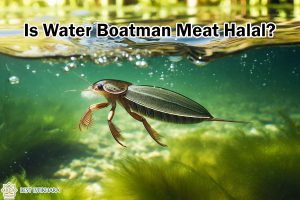Is Palm Weevils Meat Halal?

Palm weevils, scientifically known as Rhynchophorus ferrugineus, are beetles whose larvae, commonly referred to as grubs, are considered a delicacy in various Southeast Asia and New Guinea regions. These insects have been part of traditional diets for centuries, often harvested from sago palms and coconut trees. Renowned for their high protein content and unique flavor, palm weevil grubs are gaining attention for their culinary value and potential as a sustainable food source. As interest grows, understanding the cultural, nutritional, and dietary implications of consuming palm weevils becomes increasingly important. Click to get more information about halal vs haram topics discussed in today’s world.
Islamic Dietary Laws: What Is Halal?
In Islam, dietary laws are governed by guidelines set out in the Quran and Hadith, the sayings and practices of the Prophet Muhammad (PBUH). “Halal” is an Arabic term meaning “permissible” and encompasses all aspects of lawful consumption and behavior. For food to be considered halal, it must adhere to specific criteria: pure, beneficial, and free from any component prohibited by Islamic law. Key forbidden (haram) items include pork and its derivatives, alcohol, and animals not slaughtered according to Islamic rites. Halal certification also ensures that food processing methods, utensils, and storage facilities comply with these religious standards. Additionally, “tayyib,” meaning wholesome and pure, often accompanies halal, emphasizing the importance of hygiene, ethical sourcing, and overall quality. Understanding these principles is crucial for Muslims to maintain dietary observance by their faith.
Are Insects Considered Halal in Islam?
The halal status of insects in Islam is a subject of considerable debate among scholars. The Quran and Hadith do not explicitly address the consumption of most insects, leading to varying interpretations. Generally, insects are categorized based on their potential harm and whether they are traditionally consumed within Muslim communities. Certain insects, such as locusts, are explicitly mentioned as halal in the Hadith. However, the permissibility of other insects, including grubs and beetles, is often determined by scholars who assess their cleanliness, nutritional value, and the absence of harmful effects. The lack of a unified stance results in diverse practices and beliefs across Islamic cultures and regions.
Scholarly Opinions on Eating Insects
Islamic scholars have differing views on the permissibility of eating insects. Some scholars argue that insects are halal if they are not harmful and their consumption is customary in a given culture. This perspective is often based on the principle that what is not explicitly forbidden in Islamic texts is permissible. Conversely, other scholars take a more conservative approach, suggesting that only insects specifically mentioned as halal, like locusts, are permissible. They argue that the consumption of other insects requires clear evidence from Islamic sources. This divergence in opinions highlights the need for further scholarly discourse and consensus to provide clear guidelines for Muslims regarding the consumption of insects.
Are Palm Weevils Halal?
Determining the halal status of palm weevils involves examining Islamic dietary laws and scholarly interpretations. While the Quran and Hadith do not explicitly mention palm weevils, the general principles of halal and haram provide a framework for evaluation. Some scholars argue that palm weevils could be considered halal if they are clean, non-toxic, and traditionally consumed by Muslims in certain regions. This is supported by the Hadith, which allows the consumption of locusts, suggesting that other non-harmful insects may also be permissible. However, the lack of explicit mention and varying cultural practices lead to differing opinions. Some scholars maintain a cautious stance, suggesting that only insects specifically mentioned as halal are permissible. This conservative view calls for clear evidence from Islamic sources before deeming palm weevils halal. Consequently, the halal status of palm weevils remains a topic of debate, requiring further scholarly research and consensus to provide clear guidance for Muslims.
Conclusion
In summary, the halal status of palm weevils, like many unconventional foods, varies based on different scholarly interpretations within Islam. While some scholars consider them halal due to the absence of explicit prohibition and their traditional consumption in certain cultures, others remain cautious, requiring clear textual evidence from Islamic sources. This divergence highlights the need for ongoing scholarly dialogue and further research to establish a consensus. Muslims interested in consuming palm weevils should seek guidance from knowledgeable religious authorities to ensure their dietary choices align with their faith’s principles. As the discussion evolves, clarity will better serve the Muslim community globally. In this regard, you may also want to read Is Cicada Meat Halal?.






